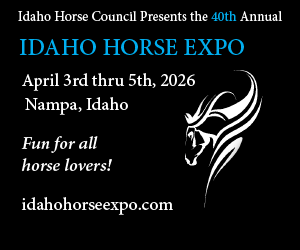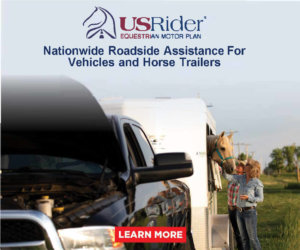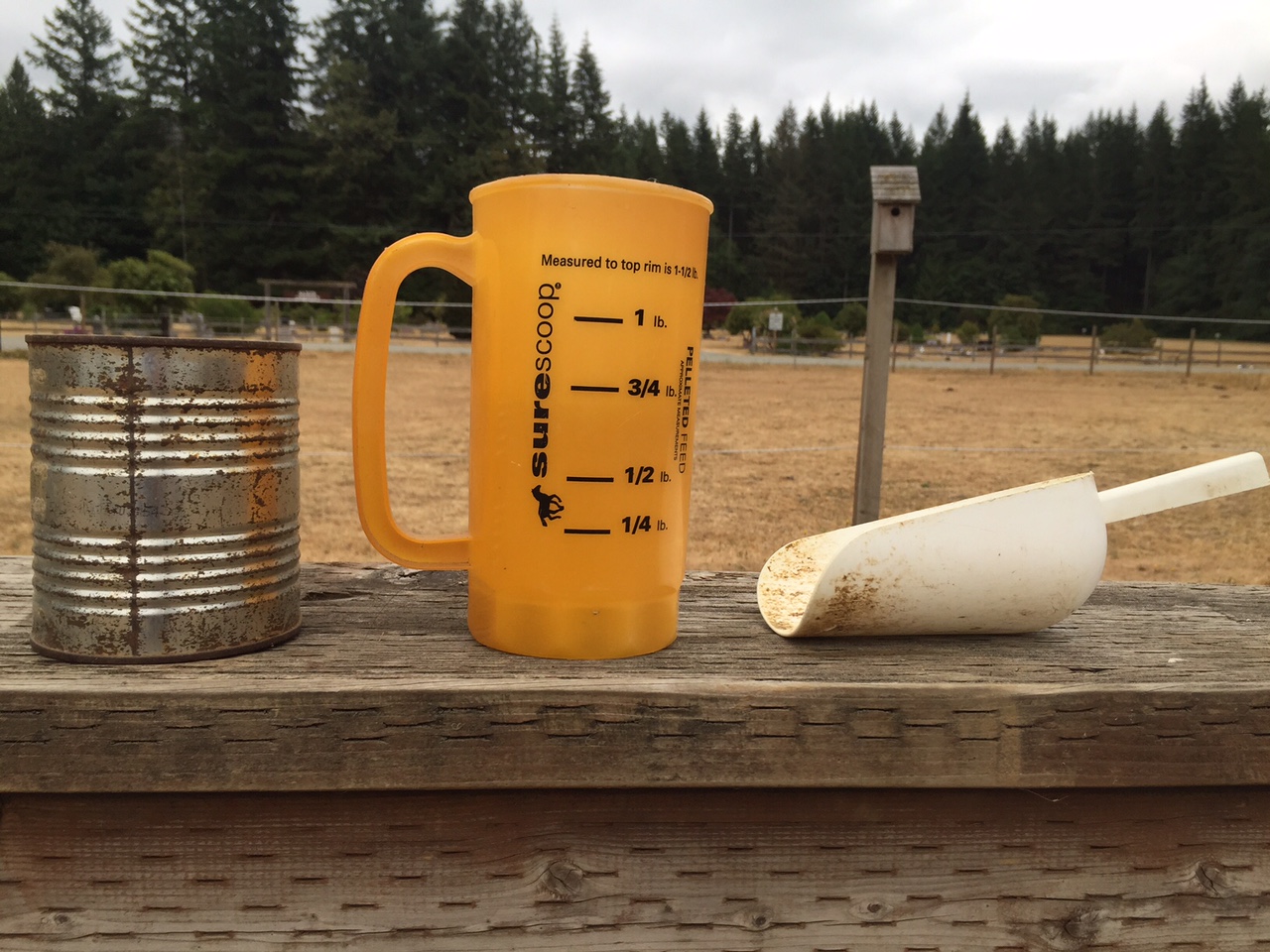Scoops Measure Volume, Not Weight
by Juliet M. Getty Ph.D.
The directions on most feed bags offer guidelines in terms of the number of pounds (or kg) you should feed. If you use a scoop to measure your horse’s feed, how many pounds are you actually feeding? Are you assuming that a 2-quart scoop, for example, offers 2 pounds (0.9 kg) of feed? This can be a dangerous assumption.
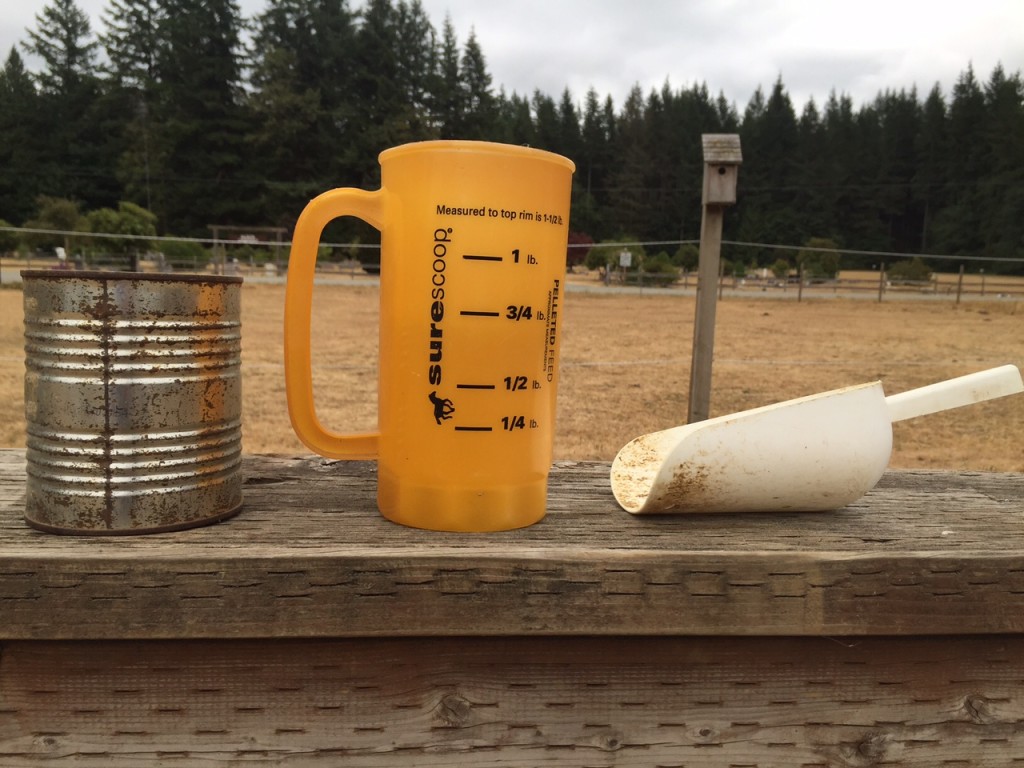
Scoops provide volume. They measure quarts or liters, but tell you nothing about weight. Even those scoops that offer weight measurements on the outside are estimates at best because it depends on what you put in the scoop that determines the weight. For instance, one quart of marbles is going to weigh more than one quart of cotton balls. By the same analogy, one quart of oats is going to weigh more than one quart of shredded beet pulp.
Knowing how much you are feeding is important for several reasons. First, your horse can potentially become obese from too many calories. Second, since the stomach is relatively small, it can only process a small amount of food at a time so supplemental meal size should be limited to no more than 4 lbs (1.8 kg) for an 1100 lb (500 kg) horse. Finally, following the manufacturer’s directions is the best way to ensure that your horse is getting all of the vitamins and minerals listed on the label, otherwise additional supplementation will be important. Quite simply, the only way to properly follow manufacturer’s directions is to weigh the feed.
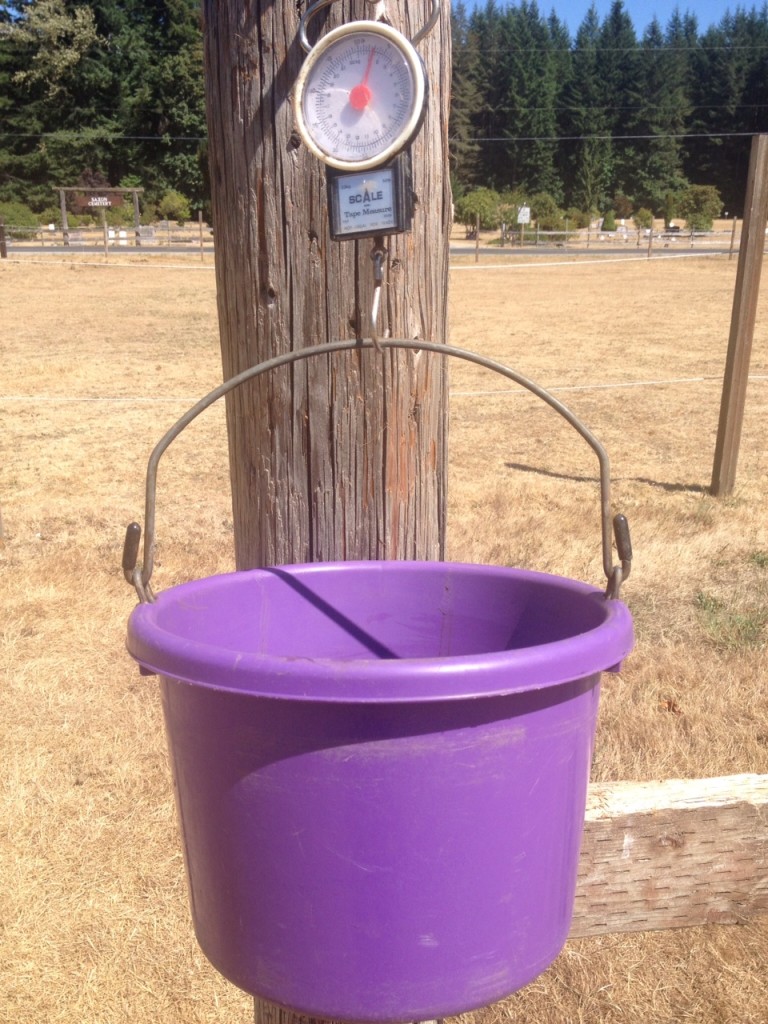
A scale is a must-have piece of equipment for any barn. Weigh your feed and mark your scoop so you do not have to weigh it each time you feed. If you change feeds, be sure to weigh the new feed and do not rely on previous measurements.
Juliet M. Getty is an internationally respected, independent equine nutritionist who believes that optimizing horse health comes from understanding how the horse’s physiology and instincts determine the correct feeding and nutrition practices. She is available for private consultations and speaking engagements. Dr. Getty’s comprehensive resource book, Feed Your Horse Like a Horse, is available at www.gettyequinenutrition.com, as well as from Amazon and other online book retailers. The seven separate volumes in Dr. Getty’s topic-centered Spotlight on Equine Nutrition series are also available at her website.

Juliet M. Getty, Ph.D. is an independent equine nutritionist with a wide U.S. and international following. Her research-based approach optimizes equine health by aligning physiology and instincts with correct feeding and nutrition practices. Dr. Getty’s goal is to empower the horseperson with the confidence and knowledge to provide the best nutrition for his or her horse’s needs. Learn more at www.gettyequinenutrition.com.



